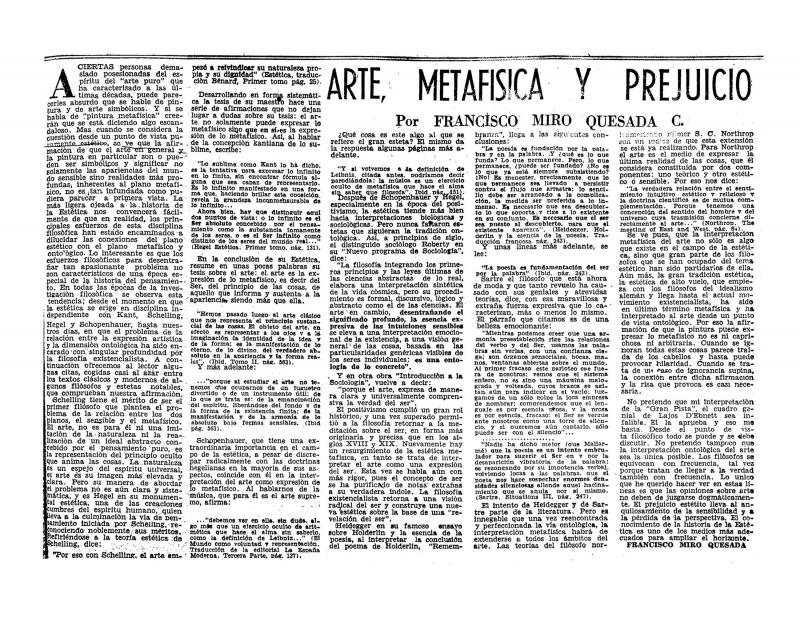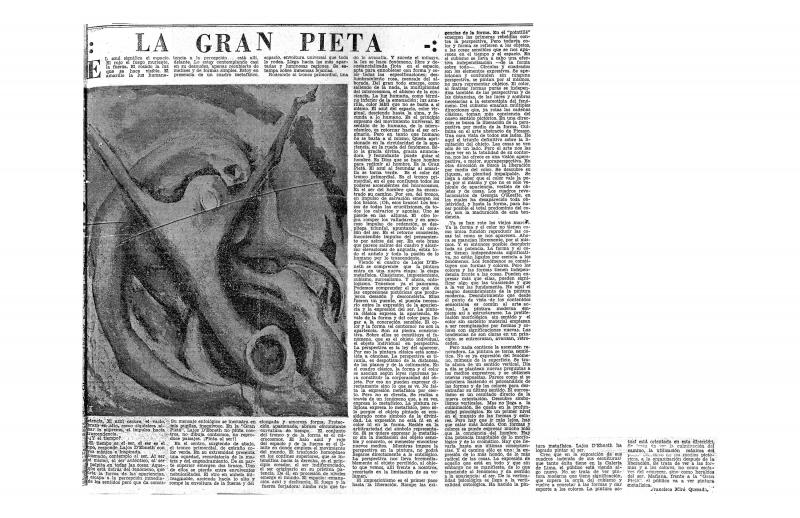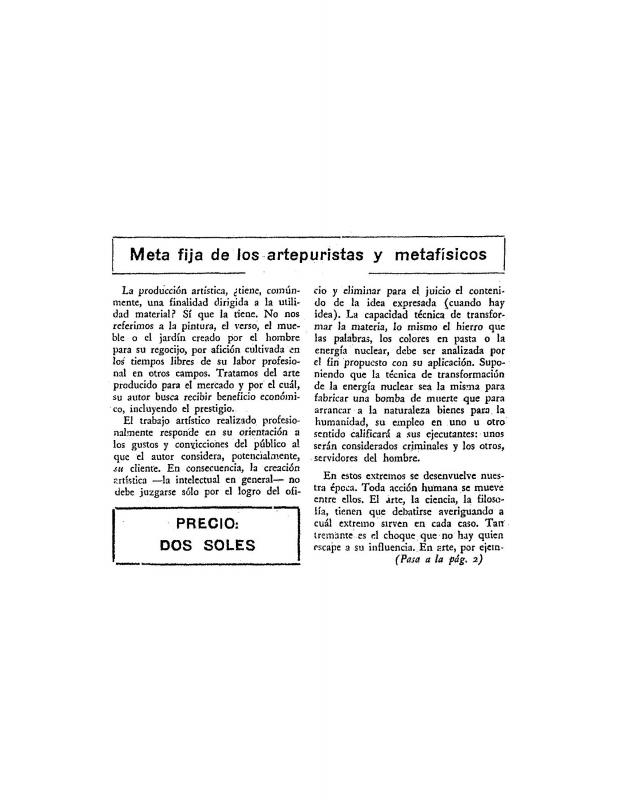In this essay Jorge Falcón discusses the exhibition of works by Lajos d’Ebneth, the Hungarian artist who lived in Peru, at the Galería de Lima in August 1950. Falcón states objectively that art is, above all, a product in search of “its client.” Intellectual creativity, therefore, not only deserves formal appraisal; it is also entitled to an opinion concerning its “suggested purpose.” Referring to art, and considering the positive or negative outcomes of all human actions, Falcón recalls Pablo Picasso’s political about face before the Second World War, “prompted by the popular struggle he joined in search of a new life, a new culture.” Those who ignored that lesson (existentialists, metaphysicians, and “moderns”) used the defense “of decadence and extreme reactionary thinking” in their critique of the Madonna azul, the Hungarian painter’s “picture card.” What is even more serious, according to this writer and militant communist is that, as seen from such esoteric perspectives, the painting represents “the cultural pinnacle of our people,” with which no connection could possibly be made. In Falcón’s opinion it is obvious that factions of this kind operate “covertly on behalf of retrograde political interests”—that is, capitalists. He compares this approach to movements that are committed to human progress, such as “realism in art and literature, scientific materialism in philosophy, and experimental science in the culture as a whole.”



